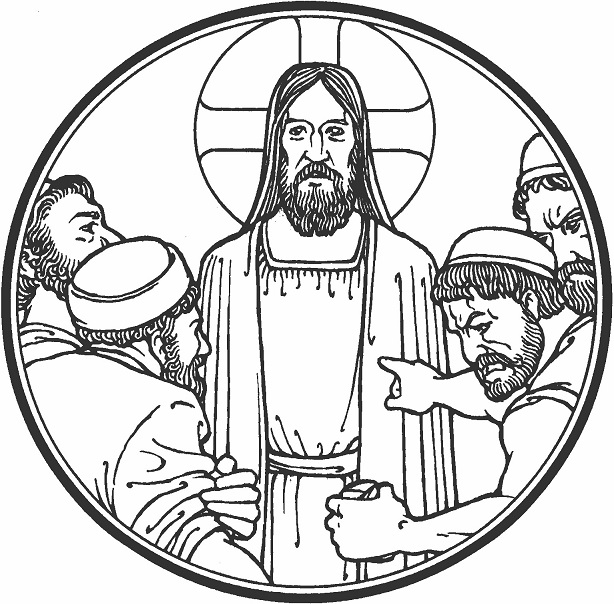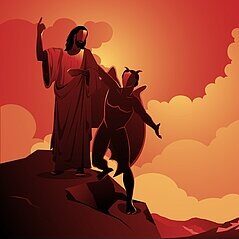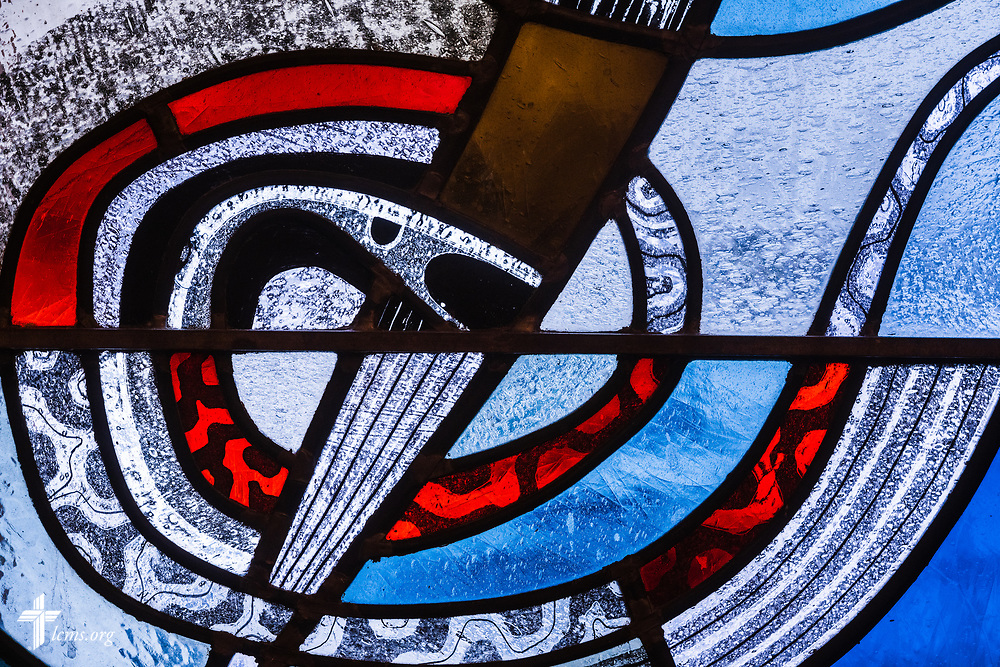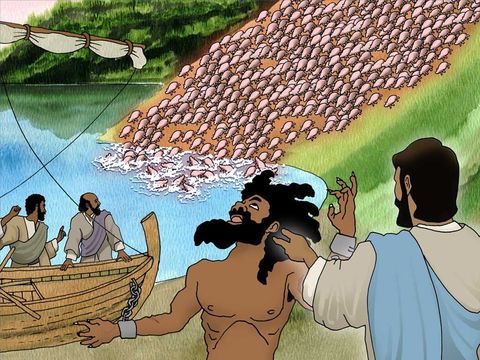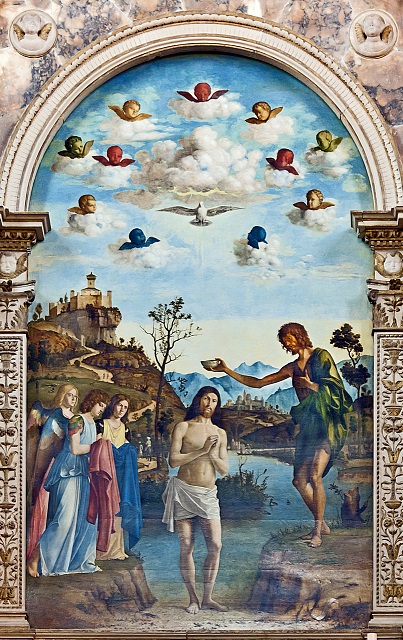Readings: Job 19:23-27 | 1 Corinthians 5:6-8 | Mark 16:1-8
Text: Mark 16:1-8
Alleluia! Christ is risen! He is risen indeed! Alleluia!

Easter mornings are always the best for Church. We sing louder than any other day. We sing, “Jesus Christ is Risen Today, Alleluia!” We shout for joy. We tell each other He is risen! We celebrate with more friends and family than usual beside us. We feast at the Lord’s table with the whole Church throughout time and eternity. And we always hear the story. The Gospel story, that Jesus is risen from the dead. And we get to see Him appear to those very first eye-witnesses.
Oh, wait, did we somehow miss that last part? That can’t be right. Today’s Gospel lesson doesn’t quite get to seeing Jesus risen from the dead. You have to come to the early service to see Jesus appear to Mary in John 20! Here in Mark 16, we’ve got the women at the tomb. We’ve got the stone rolled away. We’ve even got the angel proclaiming the good news that Jesus is no longer in the grave. And then the women run off. “and they said nothing to anyone, for they were afraid.”
In fact, that’s where the earliest manuscripts of the Gospel of Mark end. Actually, it might even end in the middle of a sentence. It ends with a word that in Greek can never begin or end a sentence. The last words in Mark are “εφοβουντο γαρ.” They were afraid, therefore…. And it stops. The ESV cleans it up by assuming γαρ was before and means “because.” Nonetheless, no one sees Jesus.
Now, later manuscripts add an ending to Mark. And we don’t exactly know what to do with them. The longer ending seems to draw on the other Gospels, and Acts. It gives us the resurrection of Jesus we’re looking for. But they really don’t seem to be originally from the Evangelist Mark. So still biblical. Just not exactly part of Mark’s story. But you can see how they got put there.

However, this shorter ending actually can be the exact ending Mark has been building to throughout his entire Gospel. For Mark, seeing is not believing. Remember also that Mark’s first audience were Gentile believers living in Rome—those who had never seen Jesus or the places He walked. Consider how in Mark’s Gospel, the disciples see many miracles throughout Jesus’ ministry, and yet not a one will stand by him from the moment He is arrested. Jesus’ enemies see what he does, too. In chapter 3, Jesus heals a man with a withered hand in the sight of all (3:1-6). And yet the Pharisees use that moment to plan Jesus’ destruction. Hanging on the cross, those Pharisees would taunt Jesus with the words, “Let the Christ, the King of Israel come down now from the cross that we may see and believe.”
In chapter 8, the Pharisees came to Jesus demanding a sign right after Jesus had just fed four thousand people. Even with the sign in front of their eyes, they demanded to see more before they would believe. And Jesus replied with these words, “Why does this generation seek a sign? Truly, I say no sign will be given to this generation.” Seeing is not believing.
Hearing, however, is. In Mark’s Gospel, the disciples followed Jesus before they ever saw Him do anything. Blind Bartimaeus in chapter 10 calls out “Lord, have mercy!” without having seen at all. It was the loud shout on the cross when Jesus died that convinced the centurion that, “Truly this man was the Son of God.” Three times we hear Jesus tell us exactly how the cross and resurrection are going to go down. And the cross happened exactly as He said. Now, here at the tomb, there sits an angel with the words, “He has risen. He is not here… Just as He told you.” We hear the Good News, well before we could ever see.
But maybe we should ask whether or not the women at the tomb believed when they heard the good news from the angel. We know they heard. But with that news, “And they went out and fled from the tomb, for trembling and astonishment had seized them, and they said nothing to anyone.” If there was anyone that should have expected an empty tomb, it was them. We heard of the women just earlier at the end of chapter 15, after Jesus died on the cross, that, “When He was in Galilee, they followed Him and ministered to Him.” They heard Jesus tell the disciples on three different occasions how He was going to die and how He would rise from the dead. But that’s why Mark ends his Gospel the way he does. With that half sentence that just begs to be completed. They were afraid, for indeed…. Where their story ends, yours begins. We start afraid. We start trembling. We start astounded.
I don’t know your fears. But there are fears that are common to all people. Perhaps you’re afraid that you don’t measure up. That you’re not doing a good enough job. Maybe you’re afraid that if you had done better in the past, today’s pains wouldn’t be as sharp as they are. It could be that you’re afraid that you can’t do enough to make right what you did wrong. Or it could be that you’re afraid to ever be wrong, lest everything come crumbling down. Today, you might be afraid of losing one you love. You could be afraid for yourself, of failing health and not being able to take care of what you used to. Then again, maybe waiting for tomorrow will be too much to bear. It could be that there’s so much, that you can’t do it all, and are afraid of disappointing those you love. Or maybe there’s nothing to be done, and you’re desperately lonely. Perhaps death is knocking at your door. And your sin is more than you can bear. Whatever it is, Satan does not let you go unscathed. Whatever it is, it’s not something you can fix.

I don’t know your fears, what makes you tremble. I don’t know what astounds so much that you can’t say anything to anyone. But Jesus has put someone here for you. A young man. Well, youngish man in a white robe who is telling you that Jesus is risen. He is not in the grave. Look here at the place where He was. He has gone ahead of you.
No matter what your fears are, Jesus is risen. Everything you fear is overcome by the Lord Jesus whom even death couldn’t conquer. That is the news we have been waiting to hear. Even if we didn’t know that’s what we needed. For indeed Jesus has taken every fear and carried it Himself. Jesus has taken the things that make us tremble, and nailed them to His cross. Jesus has taken even the most astounding sins, and buried them in His tomb. Look at the place where He was. All our sins lie dead. But Jesus has gone ahead of us into life. We were afraid, for indeed our sin was great. Our fears are overcome, for indeed our Savior is greater. Greater than even death itself. And this is the best thing we could ever hear.
Therefore, Easter is for hearing. Our fears are overcome. Our sins are forgiven. Our griefs, He has shouldered. Our doubts, He has carried. Our worst failures are made right. During, our loneliest hour, Jesus is with us. Death has been defeated. And life is given out to all. This is where the Gospel of Jesus Christ continues. This is where the good news reaches our ears and we hear who we are in Christ. Faith comes by hearing, and hearing the Word of God. And so we shout the Easter message so that all may hear.
Alleluia! Christ is risen! He is risen indeed! Alleluia! Amen.











